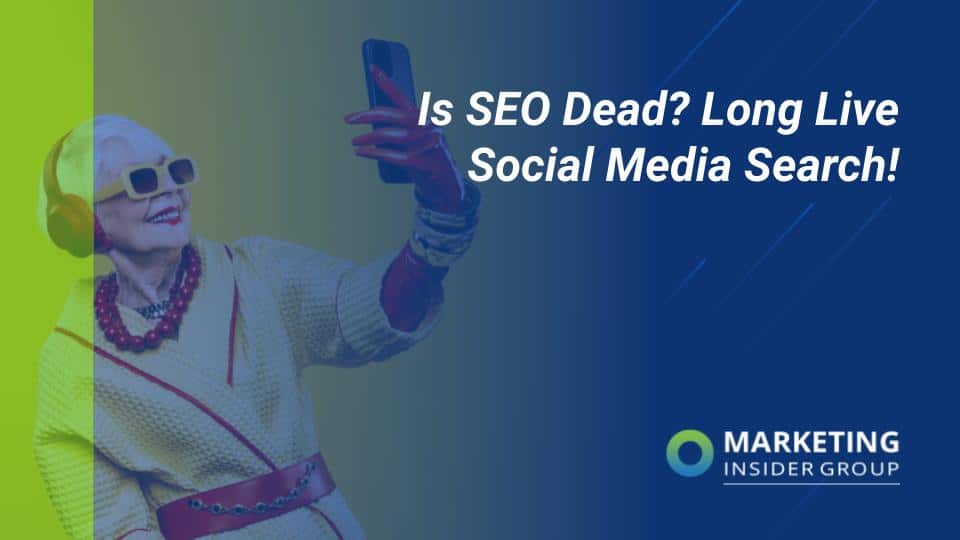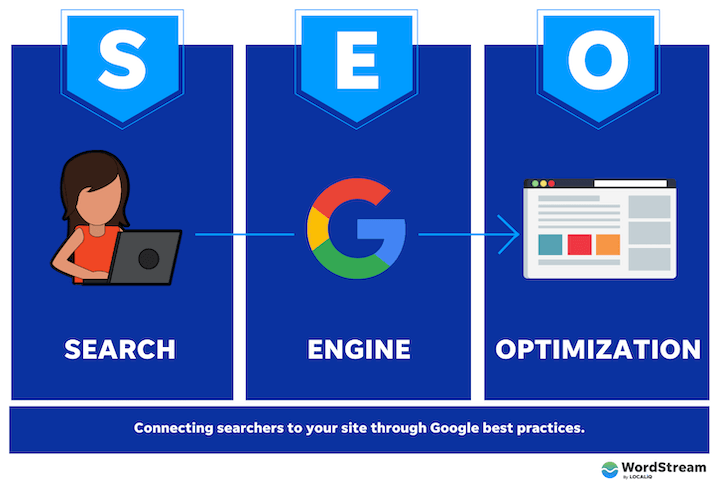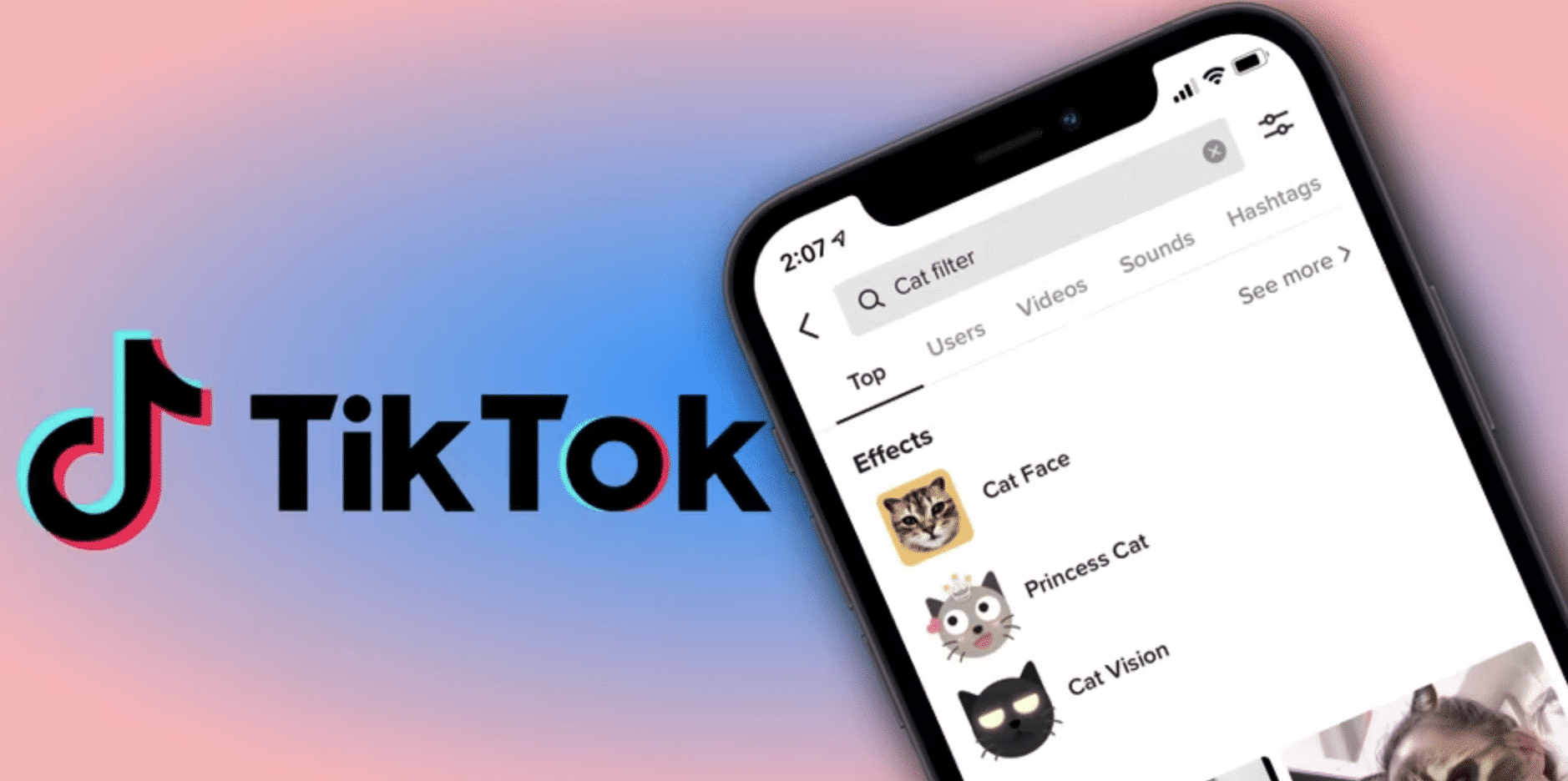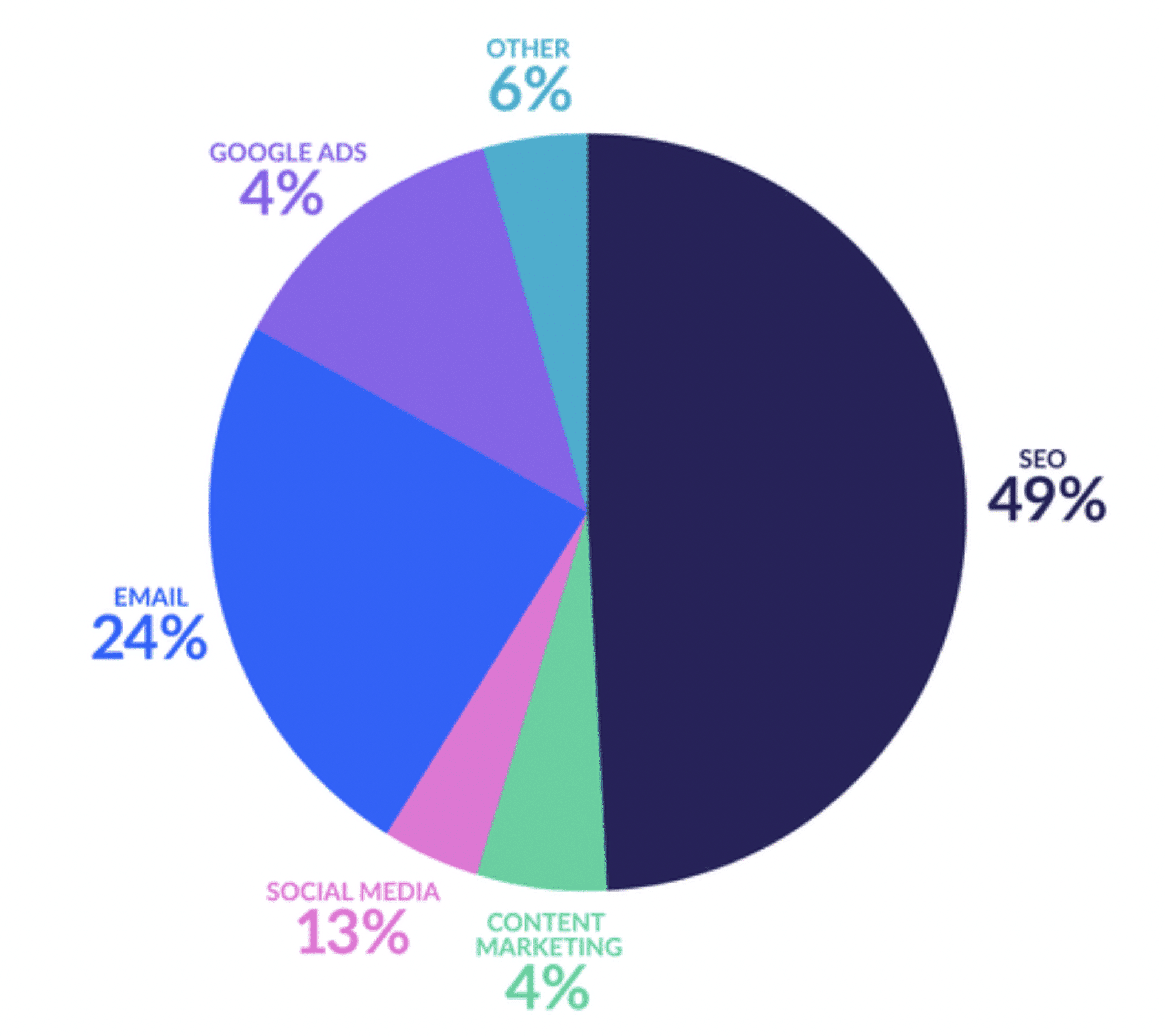
Is SEO Dead? Long Live Social Search!
Gone are the days when Google reigned supreme, because social media search is on the rise.
More and more users are asking TikTok and Instagram to answer their questions. Are social media’s conversational, personalized responses leaving Google’s SERPs in the dust?
TikTok alone has ended Google’s 15-year streak as the world’s most popular search engine. I guess Google’s 5.7 million searches per minute just aren’t enough to keep them on top…
As marketers, we’re faced with a dilemma. For many of us, we can’t fathom the idea of saying goodbye to our beloved SEO strategies. For others, they’ve already jumped ship to conquer their new and improved social media search strategies.
But let’s just hold our horses so we can get to the bottom of this –
Is it time for marketers to move on from SEO and put all of our energy into social media search? Or is this just another trend we should wait out so Google can reclaim its glory?
Quick Takeaways
- A recent study shows that 40% of Gen-Z users prefer searching for information on TikTok and Instagram rather than Google
- Social media platforms offer a more personalized, engaging, and interactive search experience
- Brands are finding it harder to compete with the power of personal networks, making social media an important tool for reaching audiences
- Social media search may be a valuable tool, but it’s not a standalone solution
Is social media search the new Google? Here’s how to adapt your content marketing strategy for maximum impact.
What Is SEO?
Let’s start with the basics of SEO.
A search engine ranks for content relevance with traits like:
- Comprehensiveness
- Freshness
- Ease of use

Image Source: WordStream
It then serves up content based on a digital algorithm that is tested and refined by user interaction. However, in most cases, basic search is only a crude indicator of intent. It’s designed by the masses, and therefore it’s often wrong.
What Is Social Media Search?
Enter the new wave of intent modeling. This generation of search is informed by social—sometimes referred to as social media search.
In other words, search engines will increasingly be driven by personal interactions like:
- Voting
- Ranking
- Commenting
- Views
This helps search engines to better understand the intent of the reader (or viewer). This social layer adds a new, personalized dimension to search results.
How Is Social Media Changing Search?
Social media search is amplified by the fact that social content is on the rise. People are creating content as fast as they are consuming it.
I first noticed this phenomenon a few years back while shopping for a Halloween costume. The leading organic search result was a Pinterest page. “Wow,” I thought, “How have brands missed this opportunity? Why didn’t Target or the Halloween Store do a better job finding the algorithm to pop into my reader?”
The fact is, it’s getting harder and harder for brands to compete with the power of the personal network. According to Search Marketing Land, a significant ratio of the top 100 results for more queries is consumer-generated media such as blogs and social networks.
This is why social media is so important to brands. If you’re still focusing on outbound communications and SEO without building an arsenal of social media content, you’re likely losing in the war for online eyeballs.
The TikTok Takeover
But Google is still the unrivaled king of search queries, right? Not anymore. Now Google is sharing its throne with social media platforms.
A recent study shows that 40% of Gen-Z users prefer searching for information on TikTok and Instagram rather than Google.

Image Source: ScreenRant
With TikTok’s shiny interface and never-ending stream of bite-sized videos, it has quickly become the new ‘it’ place for Gen-Z to search for information.
And why not? Social media platforms offer a search experience that’s:
- Personalized
- Engaging
- Interactive
They allow users to not only find information but also interact with it, share it, and discuss it with friends. This social aspect of search is something that traditional search engines lack.
And let’s not forget about the algorithms, which choose content based on what you like and do, making them a strong tool for personalized search. Users are more likely to find content that matches their interests and tastes, making the entire search experience more enjoyable and rewarding.
Is Social Media The New Marketing Strategy?
So if Gen-Z is giving up on Google search, does that mean your marketing strategy should too?
TikTok may be the new social media search hub, but it’s not going to do all the heavy lifting for you. The key to success is (still) understanding your customers and creating high content that aligns with their needs and interests. And covering all your bases.
Sure, this can come in the form of TikTok videos, Instagram reels, and LinkedIn posts, but we can’t forget about:
- Blog posts
- Podcasts
- Infographics
- Case studies
Any kind of content that represents both your brand and audience’s interests will drive better traffic and engagement.
Use strong marketing tactics, like tagging and SEO, to curate a content marketing strategy that’s optimized for both Google and social media search. This will not only help your content appear on SERPs and social media searches, but also AI queries, like ChatGPT.
So, while TikTok and other social media channels are a great tool to have in your kit, they’re just one part of a larger, well-rounded digital strategy. The key is to build content density so the digital space recognizes your brand as reputable.
Hungry for more? Carrie Rose shares some seriously great insight in the video below.
Video Source: Carrie Rose
Now What?
Add social media search to your kit of SEO and paid search. After all, organic search still ranks as the digital marketing channel that generates the most ROI.

Image Source: WebsiteBuilderExpert
Building influencers, online communities, and social at scale is the new search. Forward thinking marketers are using social media search to understand the social behavior of their clients and act on it.
If social media search is discovery, traditional search is the validation of that discovery. Brands are using social data to understand consumer intent and pushing out relevant data to consumers—before they even know they’re interested—by using sophisticated purchase intent models.
Build Your Content Arsenal Today!
SEO may be sharing the spotlight with social media search, but that doesn’t mean you need to revamp your entire content marketing strategy. To really amp up your digital presence, you need a whole lot of high quality content that hits the right notes with your audience.
Mix social media search into your strategy and consistently create content that keeps your audience engaged. Get started today by checking out our weekly blog content service, or schedule a free consultation now to learn more!







Hey Tami,
I’m not sure I fully understand how you are envisioning this social search society….
Are you saying that we will move to social search engines or are you saying that Google will start using social signals as ranking factors?
If it’s the latter then surely this is still SEO – just with a few extra hoops to jump through (and potential loopholes to exploit).
While I’m a fan of Pinterest, there is no way that consumers will ever use it over Google as a primary search engine.
The only way that Google will ever be able to make perfect suggestions is by storing huge amounts of data on you – the consumer… and that opens up an entirely different can of worms!
I personally like “inbound marketing” because it covers content, social, search + on-site (accessibility, user experience, conversion rate optimization, etc). To me, that mashes up the key parts of what we do – helping sites earn and convert traffic on the web not through interruption, but through authentic attraction.
Is this because Google has gotten so bad that it’s basically unusable? Or are there other factors at work? I know my 28-year-old son and his friends all use Reddit when they want an actual answer to a question.